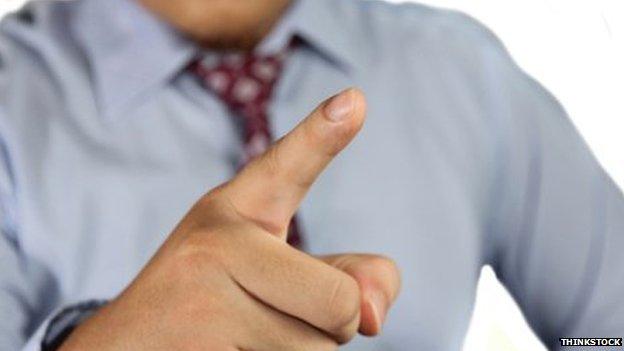Q&A: Smacking ban in Wales
- Published

AMs have discussing a smacking ban for more than a decade but only recently got the powers
We now know Welsh ministers could allow a further vote to ban the smacking of children before the next assembly election in 2016.
What form might the vote take?
The simplest approach could be to allow Labour AMs a free vote on the issue, whether on an amendment to the Domestic Abuse Bill, for example, or perhaps on a separate piece of legislation on smacking.
Given the high level of support for a smacking ban in the assembly chamber, campaigners would be expected to win the vote.
How quickly might a vote happen?
We have two years before the assembly election, so with help from Welsh ministers there is theoretically time for an amendment to a bill to be inserted, consulted on and voted through the Senedd.
If the bill involved were to reach a point where it would be impossible for the legislation to clear the various hurdles before polling day the bill would fall.
What would happen after a vote in favour of a ban?
Assuming AMs have voted for a ban, we then have the question of whether or not there might be a legal challenge.
The basis of the ban would be that it would be a child protection measure, but the UK government could argue that AMs are straying into the non-devolved area of criminal justice.
Welsh and UK government lawyers would then make a date at the Supreme Court to establish who is right.
How would any ban work?
Opponents of a ban argue that any ban would be difficult, if not impossible to enforce.
Those wanting to outlaw smacking of children say there are plenty of laws that work because they have the consent of much of the population.
The law on wearing seatbelts in cars, they say, is an example of this.
How would the law be different from what we have now?
The ban would remove the defence of reasonable punishment if you hit a child.
Children would be given the same legal protection as adults.
Those opposing a ban say the current law provides ample protection for children from abuse, but would prevent court juries from being able to use flexibility and common sense to identify genuine abuse of children.
- Published11 February 2014
- Published10 February 2014
- Published4 February 2014
- Published31 January 2014
- Published17 October 2011